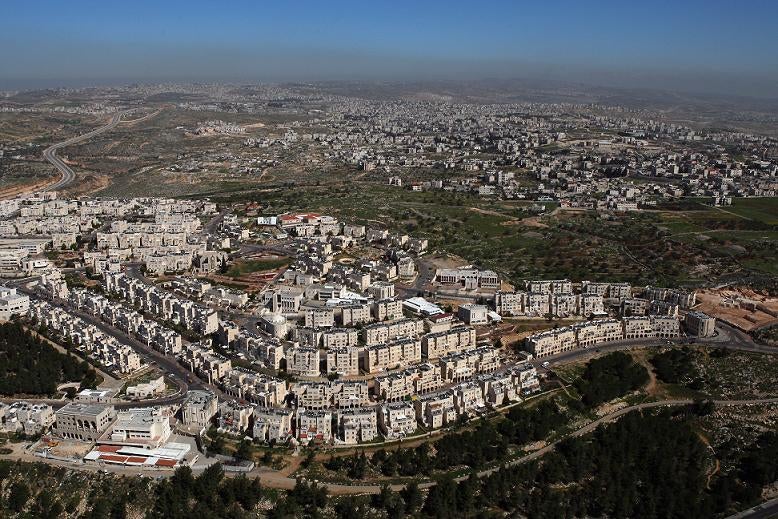In Jerusalem, even street naming can be divisive

In East Jerusalem, addresses in many Palestinian neighborhoods are nonexistent. Without street names and house numbers, people identify where they live by adjacent landmarks: "opposite the mosque," or "next to the corner bakery."
Bills and mail are delivered to those fortunate enough to have post office boxes or by local couriers familiar with the homes and people living on the unmarked streets.
So it was with a bit of fanfare that Jerusalem's mayor, Nir Barkat, presided on Wednesday over a street-naming ceremony in the East Jerusalem neighborhood of Beit Hanina, showcasing it as part of an effort to bridge gaps in living conditions between Jewish and Arab residents in the city.
Like any Israeli move in this contested city, though, the street-naming project carried political overtones.
An announcement from City Hall said that the naming was part of a comprehensive plan to name all the streets in Jerusalem's Arab neighborhoods and that 145 new street names suggested by local representatives had been approved this year. The next phase of the plan is to number the homes, making Arab streets as navigable as those in the Jewish part of town.
Barkat, the mayor, is an advocate of a "united Jerusalem" under Israeli sovereignty. He promotes the improvements in Arab areas as part of a mission to improve services under Israeli control.
But Palestinians view East Jerusalem, annexed by Israel after its capture from Jordan in the 1967 Middle East war, as the capital of their hoped-for state. They call Israeli rule there an occupation and chafe at Israeli settlement. Their resentment has been further fueled by wide disparities in city services between Jewish and Arab neighborhoods.
Before Barkat arrived for the street-naming ceremony, residents noted that the area had been spruced up for his visit, with garbage collected and potholes filled. Out of view farther up the hill, the same street was a bumpy patchwork of years of crude repairs, petering out into a trash-strewn dirt track.
Sanitation trucks never came up that far, residents said, complaining that they had to cart their own refuse down to a dumpster at the foot of the hill. Blind curves on the narrow, winding street had caused car accidents, they said.
"Naming the street is not what's important," said Zuheir Abu Halaf, who approached Barkat after his speech to complain about the driving hazards.
Out of a total city population of some 800,000, Jerusalem has nearly 300,000 Palestinian residents who pay city taxes and qualify for Israeli social and health benefits.
"It is very important to us to upgrade the quality of life of all residents of Jerusalem," Barkat told a smattering of Beit Hanina residents and city officials who turned up for the ceremony.
The newly christened street was named after Umm Kulthum, the legendary Egyptian diva who died in 1975 and is still revered across the Middle East as the greatest of all Arab women singers. To the strains of one of her most famous songs, performed by a young singer, Barkat and the head of the local community council unveiled a street sign on a stretch of road partially repaved for the occasion.
Defending his record, Barkat, who took office four years ago, said in his remarks that there were plans to add hundreds of new classrooms to crowded Arab schools and to pave a network of roads in East Jerusalem neighborhoods. He also pledged efforts to issue more building permits in those areas, where a population boom and Israeli planning restrictions have led to repeated demolitions of homes built without city approval.
Muhammad Masri, the head of the community council, said that he and his colleagues had pressed city officials for years to name streets and make other neighborhood improvements. He asserted that he was ready to work with the municipality despite criticism from Palestinian factions opposed to cooperation with the Israelis. Daily needs trumped politics, he argued.
"We have people who have to live, to survive, and as a tax-paying citizen you deserve to get something in return," he said. "This is not political. I live here, and if I don't look out for myself, who will?"
Subscribe to Independent Premium to bookmark this article
Want to bookmark your favourite articles and stories to read or reference later? Start your Independent Premium subscription today.

Join our commenting forum
Join thought-provoking conversations, follow other Independent readers and see their replies